Horses have a big appetite and are great foodies. If we look at their list of favorite foods, we can easily find items that humans also consume. Horses are very fond of apples, carrots, pumpkin, etc., and can eat nuts and some processed food items too, but in moderation. Read on and find out some of the human food that horses can eat and some that they cannot.
Fruits that Horses Can Eat
Horses are big sweet toothed animals who will relish the fruits they get to consume. Fruits are often given as treats to them but in a regulated manner. Since increased sugar content can be bad for horses, these should be restricted to one per day, according to the diet and physical exercises the horse actively participates in.
Apples are one of the most common treats served to horses for ages. Horses happily munching on the fruit whenever they find one also explains how much they adore having them. But since apples are high in natural sugar, they should be restricted to only one per day, either cubed or diced. The water content and fiber in the fruit are good for your horses while making them content and satisfied.
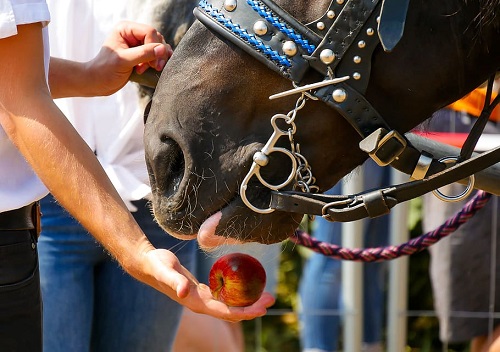
Bananas are yet another fun treat that your horse will love. Bananas, rich in potassium, carbohydrates, and protein, suit the role of a treat for a horse engaged in hard labor. The mushy bananas also will help with their digestion process. In fact, there are horses who also would love to have bananas with the peel on, and that’s how much they love this fruit. Even though your horse loves it and banana is a significant source of nutrition, it should only be given as an occasional treat.
For horses housed in warm climates, watermelons are the perfect summer treat, with the high-water content the fruit has to offer and the freshening taste that lingers on the taste buds. But while giving this treat to your horse, do not provide more than two pieces a day, and remember to remove the seeds from those pieces.
A horse that takes hard labor will always love strawberries and cherries because of the flavor bursts it offers and the rich nutrients they contain. Since strawberries can grow among the pastures, you must be careful not to let them grow where your horses can reach, as it contains large amounts of sugar. These berries should only be fed once or twice a week in a few numbers.
Citrus fruits like oranges, tangerines, and grapefruits are much-loved treats for horses. The fiber, vitamin C, and folic acid present in these fruits benefit the health of your horses. It would be better if you could take away the peels and seeds of the fruits, as it could affect the sensitive digestive tract of your horse.
Vegetables that Horses Can Eat
Vegetables and leafy greens are as good for horses as for humans. To keep your horse happy all the time, it is vital that you treat them with some things out of the ordinary through their feed. And vegetables like carrots and pumpkins are well loved by horses, making it easier for you, as you can quickly grab a few of those from your own kitchen!
Carrots are yet another popular treat among horse owners. The colorful vegetable is a rich source of water and fiber that enhances the health of your horse. Since it is also a source of sugar, the number per day should be restricted to one and should not be fed to horses suffering from sugar sensitivity.
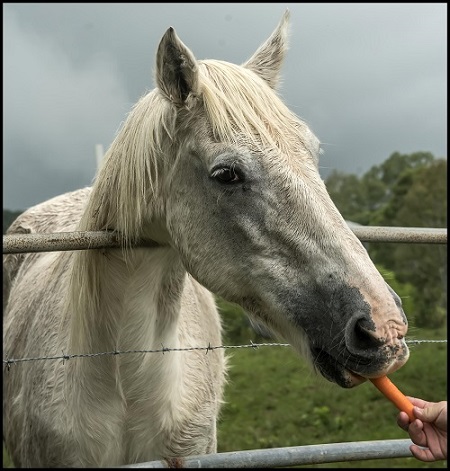
Pumpkin is good for the stomach health of your horse and is something your horse will love to have. It contains potassium, magnesium, and vitamins A, C, and E, which will help with their nutrient requirements. Horses in the wild always savor pumpkins whenever they find them.
Turnips are one exception among the vegetables that descend from the brassica family that are safe for horses to eat. Turnip greens can be fed to horses as much as you find it, but the root should only be given in moderation. The root vegetable rich in vitamin K, sodium, and zinc is best for horses prone to colic.
Iron and fiber-rich beets are one of the most popular treats available in the market. Dried beet pulp, mostly in flakes, is fed to dehydrated and malnourished horses. Beet served as dried pulp must be provided with water, while raw beetroot can be given as cubes on alternate days.
Other vegetables that both humans and horses can eat include green beans, peas, sweet potatoes, and leafy greens like celery and lettuce. All these vegetables are storehouses of essential nutrients that can be additions to the diet of your horses to add some color to their daily lives. But the amount must be regulated appropriately to prevent their health from being at risk.
Cereals, Nuts, and Commercial Sweets that Horses Can Eat
Horses can be fed with most types of cereals and grains, but you must be careful not to feed them grains that are improperly stored or created with extensive use of pesticides, as it could harm the horses. Oats, barley, wheat, corn, and rice are some of the grains and cereals that can be served to your horses, either cooked or as whole grains. These food grains fulfill their fiber and protein needs and should be provided in moderation, as digesting these can get tricky.
Nuts can provide the minerals that your horse lacks. Peanuts, sunflower seeds, linseeds, and millet seeds are among the top choices in nuts when it comes to horses. The servings of these should also be monitored consistently as some, if fed more than required, could turn toxic to the horse’s well-being.
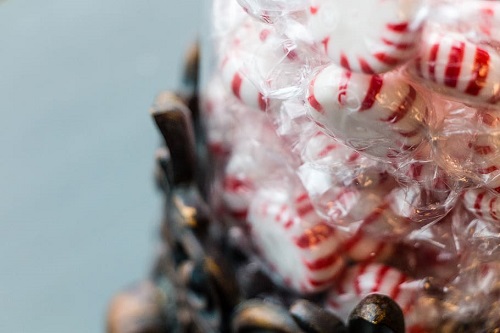
And if you are having some peppermint candies, candy canes, or popcorn while walking around your horse, you can happily share a few with the horse. The candies, since they only contain sugar, should not be given more than a few, while making sure that you give them only the fully popped popcorn since the others could mess with their teeth.
What Human Food Can Horses NOT Eat?
While there are many food items that humans and horses share an appetite for, there are also some that are harmful to horses. Processed foods that humans consume in significant amounts should not be given to horses since it contains lots of preservatives, artificial sweeteners, and salt, which the horse’s digestive system will not accept.
Also, while giving them fruits, make sure that you pick the stones out before feeding them. Avocado and litchi are not usually served to horses as avocado’s skin and leaves are found to be toxic to them, and litchi fruit badly affects their nerves.
The brassica family in vegetables (including cabbage, cauliflower, brussels sprouts, etc.) is found to create gas-related problems in horses. And vegetables like tomatoes, potatoes, and eggplant that belong to the nightshade family should also be avoided since the toxins they produce can cause serious nerve damage in horses.
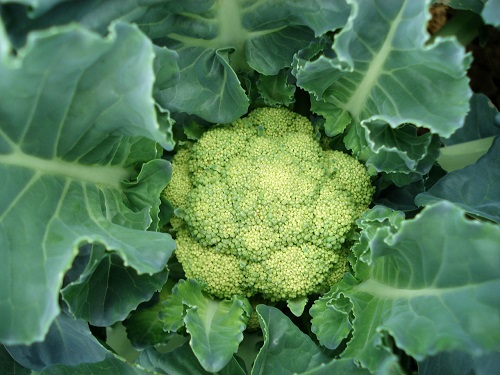
Chocolate and other baked goods also should not be given to your horses. Since horses are herbivores, meat, and dairy products should also be avoided as they cannot digest them properly.
Conclusion
Though horses are great eaters, their stomachs do not always support them in their desires. There are many human foods that horses can eat and many that they cannot consume. It is important to know what human food is good for your horse before feeding them and be cautious of any allergic reactions to the same. It will be fun to share some food with your big equine friends sometimes, do you not think so?
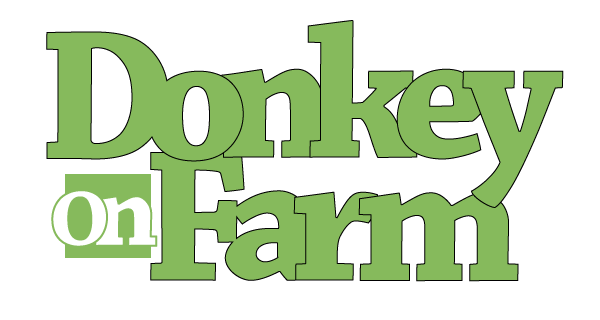
![What Human Food Can Horses Eat? [There Are Some They Can’t] what human food can horses eat](https://donkeyonfarm.com/wp-content/uploads/2023/07/the-horse-gray-is-gray-horse-preview_11zon.jpg)

![Why Do Horses Bob Their Heads? [Don’t Ignore Their Head Movements] why do horses bob their heads](https://donkeyonfarm.com/wp-content/uploads/2023/03/why-do-horses-bob-their-heads-270x180.jpg)
![Do Horses Recognize Their Owners? [Hint: It Depends] do horses recognize their owners](https://donkeyonfarm.com/wp-content/uploads/2023/03/Do-Horses-Recognize-Their-Owners-270x180.jpg)
![Are Horses Loyal to Their Owners? [With Tips to Earn Their Trust] are horses loyal to their owners](https://donkeyonfarm.com/wp-content/uploads/2023/04/are-horses-loyal-to-their-owners-270x180.jpg)
![Are Mini Horses Natural? [Do They Make Good Pets?] are mini horses natural](https://donkeyonfarm.com/wp-content/uploads/2023/07/miniature-horse-3973954_1280_11zon-270x180.jpg)